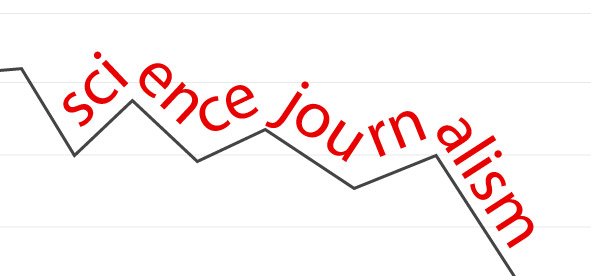Likewise, other countries of the world, in Pakistan the academia has fixed a borderline between the humanities and the general sciences and this division probably more absolute more than past because it seems almost practically impossible for a student to engage him/herself in two simultaneously different subjects. But still, a lot of people are interested in both and willing to read, write, or to know about what is happening in the various fields of science. This is not because the storytelling defines us as a human but it’s natural to be attracted by a scientific explanation of what we humans are, where did we come from and what is our place in this vast universe?
Science writing can play an important role in engaging a layman with science & technology and modern advancement. Consequently, it brings the work of researchers and scientists from the observatories/lab to the public spotlight. A science writer does not always need detailed, in-depth exper-tise, but should have a vast and up to date knowledge of a particular field of science and concerned topics. But the effort to become a science writer does not end here, a true passion and the ability to narrate pure scientific concepts to a non-scientific reader are mandatory as well.
The newly emerging field of science writing has caught the attention of an overwhelming number of people have good skills in writing. In the western culture, the students usually kickoff their career as a freelancer during their schooling, but here in Pakistan, neither it is promoted by our acade-mic intuitions nor by print or electronic media.
At its best, science writing is an emerging field of journalism that needs more than a desire to become a science writer. It is a matter of fact that a fewer number of writers broken into the profession through science blogging in Pakistan. Since it’s not so easy to make a career, it almost always takes month or years of unpaid labor. For most of the beginners, science blogging is not a standalone strategy but a tool for spreading awareness and passion for science among the masses.
I have been in print and electronic media for two years and with hundreds of my write-ups including but not limited to astronomy, astrobiology, and space-based astronomy, I tried hard to promote the passion of science writing in our new generation. When I started my writing career from ARY NEWS, there were fewer members of the science community who believe that science can be a genre in mainstream media. Eventually, the interesting write-ups by a few other passionate science writers helped more writers to come forward, define their beats and further hone their skills into this vibrant new digital age.
Consequently, the great motivation I got from the success stories of
There are a fewer number of individuals have been struggling hard to make science as a genre and to reshape the narrative of science journalism in Pakistan. The monthly Urdu science magazine “Global science” had been promoting science for more than a decade and now a few of other
science and technology magazine in the country at the current moment is technology times, whereas MIT technology review and Spectra magazine by UET Lahore students are making their way out to in journalism.
Eventually, with the support of the journalist community, a handful of science enthusiast and writers has recently been launched an online English astrophysics magazine “Scientia” which is the first of its kind in Pakistan. No doubt this is the much-needed initiative that provides the
The new Government got overwhelming attention of common people in Pakistan with their slogan “NAYA PAKISTAN”, as per pre and post-election announcements the government beckons towards framing a new people-centered development paradigm to provide basic needs like quality
journalism in Pakistan.
The article was originally appeared on ARY News Blogs and re posted here with the permission of Author and ARY media group.

Saadeqa Khan is the founder, CEO, & Editor-in-Chief of Scientia Pakistan. She’s a member of the Oxford Climate Journalism Network (Second Cohort) and NASW. Saadeqa is a fellow of NPF Washington, The Falling Walls Foundation, and the Science Journalism Forum. Saadeqa has won several international journalism grants and awards for her reports.

